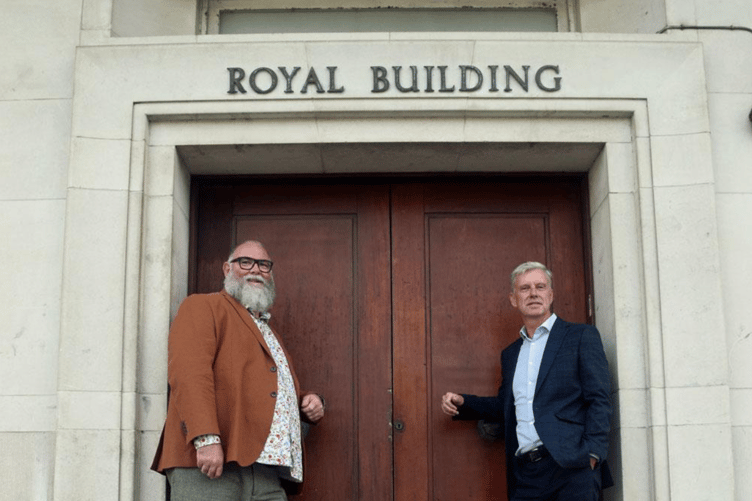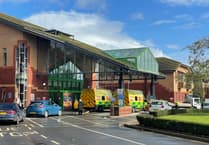A PROJECT to convert a Plymouth city centre building into temporary accommodation for the homeless took a back seat for a year because other externally funded schemes were on tighter time constraints, a meeting has heard.
When the city council bought the Royal Building for £5 million last October there was an urgent need for temporary flats because no-one was investing in them, according to the council’s cabinet member for housing, Cllr Chris Penberthy (Lab, St Peter and the Waterfront).
Since then external funding of £9 million has come forward and 180 homes for those in the greatest need are in the process of being built or are in the pipeline.
It may mean that original plans for the Royal Building could change.
The councillor told a meeting of the authority’s housing and community services scrutiny panel that several things had happened to change the landscape of temporary housing provision in Plymouth. He was responding to a question from Cllr Jon Dingle (Lab, St Budeaux) who asked what was the latest on the Royal Building.
Plymouth City Council and its partners had been successful in bidding for money from the government’s Local Authority Housing Fund 3 for 11 units and Supported Housing Accommodation Programme for 74 homes, the meeting was told.
At the same time it had supported others to deliver 70 more units at no cost to the council.
Tight funding timetables meant the council had to “balance priorities to ensure successful completion” said the councillor.
In addition the council recently announced that it was forming a new housing partnership with Bournemouth Churches Housing Association (BCHA) to bring forward 22 units of temporary accommodation and 39 general needs homes as a starting point.
With backing from Homes England this is expected to be a £18.3 investment with the council contributing £1 million and land opportunities.
Cllr Penberthy said in the meantime they had been looking at the standard of the Royal Building, which was previously self contained student accommodation, and what the accommodation mix should be.
He said he was “not quite ready to say what comes next” but would be ready “to move to the next stages” over the coming weeks.
The right housing mix now was not necessarily the same as 12 months ago. At that time the idea was to convert the building into one, two and three bed flats for families and some office space for the council’s housing team.
“We need to work out if it is family accommodation we need or homes for single people, short term temporary, long term temporary or even permanent housing,” he said.
“If the homes are for vulnerable people we would need extra office space, and housing for people who have suffered domestic violence is different to that needed for complex needs.”
He added that building standards were changing and the council needed to make sure that anything it did fitted in with new legislation.
Plymouth City Council has been trying to reduce its reliance on costly bed and breakfast accommodation by building more temporary homes.
A report to the scrutiny panel showed that between June 2021 and August 2025, the number of households in temporary accommodation had doubled from 221 to 443. In August this year there were still 214 households in B&B accommodation.
The authority has plans to tackle the housing crisis and accommodate the growth of the city with its £4.4 million investment in defence by building 10,000 homes in the city.





Comments
This article has no comments yet. Be the first to leave a comment.